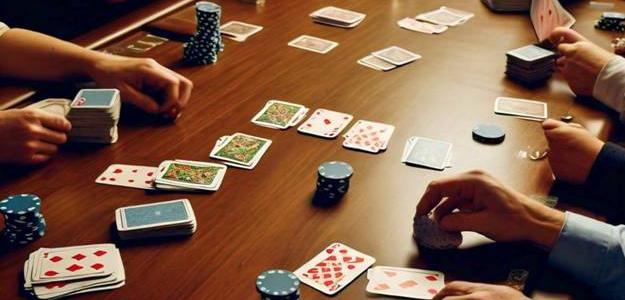Small Stakes Players Who Made It Big at the World Series of Poker
2 months ago

01 Aug
As television glares with tables of giant poker names and news of some of the games, most legendary tales are easily overlooked, many began in seedy underground bars, played between friends at home, or under the guise of unknown avatars. Apparently, ‘the big game,’ The World Series of Poker (WSOP) isn’t all about seasoned pros. Some players began in micro-stakes and then leapfrogged to the ranks of poker ‘big shots’ by most ‘young guns’ on only small bankrolls and buckets of determination. It has proven that this game should not detract from or sideline the few dreamers that emerge out from obscurity.
What Small Stakes Success Truly Means
Small stakes players are usually those players who start with cheap buy-ins, anywhere from $1 to $50, or who grind it out in local games and online micro-stakes before coming in the WSOP limelight. Some of these players get in through satellite tournaments, slowly moving through the ladder until they’re world champions. It is funny how just like some people play online slots for fun or relaxation, there would be people for whom this micro-stakes poker would mean a serious business. The stakes may be low, but the learning curve proves otherwise for a select few; it is a prelude to glory.
The stories they tell may be uplifting, but they also say something more general: poker is a game that rewards readiness, calmness, and presence of mind under pressure and not just the size of the bankroll. The WSOP, covering a staggering variety of events and buy-ins, places itself as a rarity amongst global arenas where complete unknowns can in one stroke become household names.
From Anonymity to Stardom
Take Chris Moneymaker. Even his last name, fictional, sounds almost fictional, but his win in the 2003 Main Event from a $39 online satellite was what ignited the poker boom. An amateur accountant beat seasoned professionals and walked away with $2.5 million. More importantly, he proved to everyone that even an average player with relatively minimal live experience could win it all.
Fast forward to Annette Obrestad, the Norwegian wonder, who developed her online bankroll only playing freerolls. She won the 2007 WSOP Europe Main Event at just 18 to become the youngest bracelet winner ever. From small-stakes online gameplay to dominating the live tournament circuit, it was almost a seamless transition, testament seemingly to hours of study and most brave approach.
WSOP “Millionaire Maker” event was played by Lisa Meredith, a kindergarten teacher from Vancouver. Surely just a hobbyist, her disciplined aggression netted her half-a-million dollars on the final table finish. And it’s this particular story that resonates with the common player; the career woman/man and parent who’s never forgotten how to dream.
More Than Just Beginner’s Luck
Certainly, skeptics may put these stories down to variance or luck and there is often much more going on underneath. Common threads that interweave the small stakes success stories are intense self-study, disciplined bankroll management, and a mindset built on resilience rather than bravado. There’s no doubt that people like Alan Percal are living proof that you don’t need to grind 60 hours a week in order to win. The WSOP Heads-Up title for Percal had been earned not through high-volume play but through laser-targeted play and tactical edge.
The rise of players like Wasnock reminds us that presently there is still a clear path from online obscurity to stardom in the poker world. His ascent reflects the ongoing shift wherein strategy and adaptability are trumping bankroll size. As ever before, his rise for others began in anonymity, only this time, it was online rather than in the smoky rooms of a bygone poker era.
In Closing
It would be easy to romanticize these players as lucky outliers, but that is to miss the real message. The World Series of Poker, for all its prestige, has always been a proving ground where talent occasionally trumps tenure. For those starting out in small-stakes games, whether in local cardrooms, online freerolls, or even just playing for matchsticks, it’s a rare chance to reach the top.
These aren’t just poker stories, they’re poker fairy tales. While very few players will become millionaires, the process of going from $5 tournaments to a bracelet is not a myth, but a modern poker reality that renews itself each year on the biggest stage of them all.







Comments
You need to be logged in to post a new comment